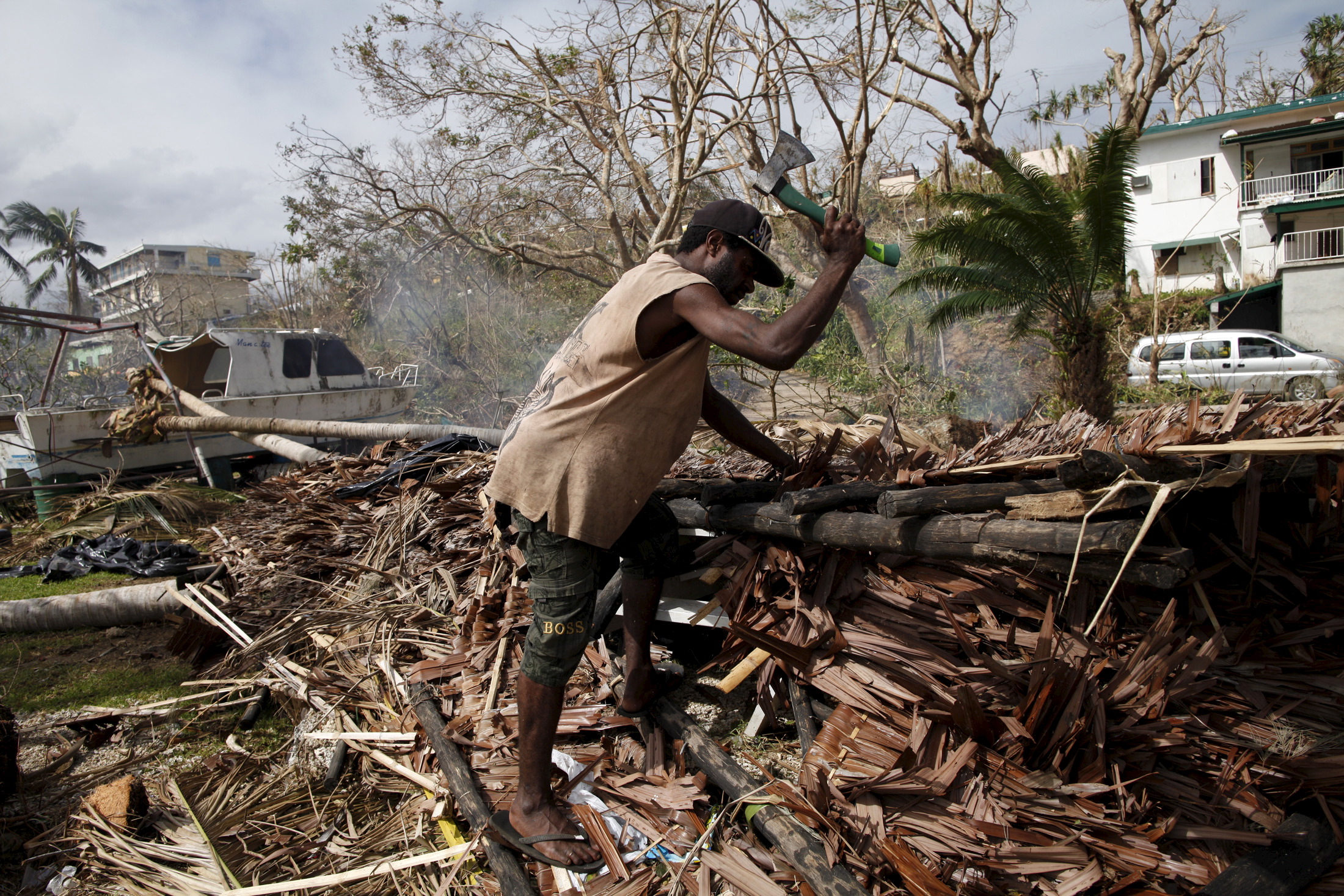
Survivors of Cyclone Pam on the South Pacific islands of Vanuatu are bracing for a lack of food over the coming months because crops were destroyed in the recent storm.
Much of the archipelago’s population relies on subsistence farming and when the monster cyclone ripped through the country last week it wiped out livelihoods as well as homes.
“There’s always a lot of attention in the beginning, the first few weeks of a big disaster. But now, we’re looking at a hunger gap over the next three to six months,” said World Vision’s emergency-operations manager in Vanuatu, Alex Snary.
Aid agencies are rushing to deliver desperately needed supplies, especially to communities on the remote outer islands, which are still out of contact.
At least 11 people were killed in the disaster and 3,3000 displaced.
“It’s almost miraculous [on Tanna Island] that there isn’t a large number of casualties, given what they’ve been through,” Snary said. Several aid groups including USAID and World Vision have been working with local communities on disaster preparedness, so many people had evacuation plans in place when the storm came.
Aid groups stress the death toll could rise as news comes in from more of the 80 islands, but Vanuatu’s Prime Minister Joe Natuman believes the number won’t rise significantly.
“The important thing is that the people survived,” he told Reuters. “If the people survived, we can rebuild.”
Although full damage assessments are yet to be completed, current aerial and ground views show 90% of homes and community buildings including hospitals, schools and churches on the southern Tanna Island have been severely damaged. There is also widespread destruction on the islands of Efate (where the capital Port Vila is located) and Erromango Island.
Meanwhile, on Wednesday, the country’s national disaster committee deputy chairman Benjamin Shing hit out at aid groups over a lack of coordination, saying they wasted precious time in getting aid to affected communities, reports Agence France-Presse.
“I have to state the facts. We have seen this time and time again,” he said in Port Vila. “In nearly every country in the world where they go in they have their own operational systems, they have their own networks and they refuse to conform to government directives.”
More Must-Reads from TIME
- How Donald Trump Won
- The Best Inventions of 2024
- Why Sleep Is the Key to Living Longer
- Robert Zemeckis Just Wants to Move You
- How to Break 8 Toxic Communication Habits
- Nicola Coughlan Bet on Herself—And Won
- Why Vinegar Is So Good for You
- Meet TIME's Newest Class of Next Generation Leaders
Write to Helen Regan at helen.regan@timeasia.com